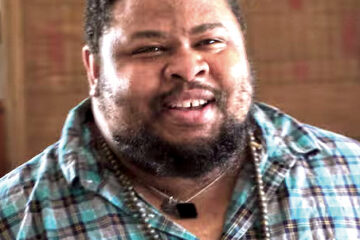Parenting teens in a time of crisis

By Dr. Betsy Stone
ejewishphilanthropy.com
We’re all in crisis right now. Between managing work and home, facing the loss of summer camps and the diminishment of services, worrying about cutbacks in our offices, trying to teach and work and parent and manage our own feelings, Covid-19 has brought out the best and the worst in us. We are hopeful and exhausted and despairing and blessed — all at once.
And so are our kids. All of them are regressing, whether it’s impulsivity, or explosions that are awfully reminiscent of 2-year-old tantrums, or simply sitting in their rooms with the door closed and the music blasting. Moody or excited, full of energy or depleted. Or, more likely, cycling between extremes.
How do we help them? First, we need to begin to understand them. Teen brains vacillate between feelings and thoughts. It’s difficult for them to think logically when they’re upset. You know, when your child is upset or angry or sad or scared, it’s really hard to talk them down. Many of us, adults and kids alike, are spending lots of time emotionally wrought.
Most of the time, adult conversations are mutual, with back and forth. I say something and you respond, maybe adding a personal story or opinion. We expect our teens to be able to do the same. They can, when they’re in their thinking brains. But when they’re in their feeling brains, this is almost impossible. When teens struggle, they need to vent.
They need to work their feelings out of their bodies — through physical activity for some, through emotional expression for some. And much of the emotional expression is repetitive, simply because the feelings are repetitive. This can be exhausting for the listener.
When we’re worn out by the needs of others, we have lots of ways we shut them down. We make statements of false empathy.
I know how you feel…
Why don’t you…
Have you thought about…
How can I help…
All of these (and more) are ways we tell other people to stop sharing. What kids hear is simple; Stop. Shut up. I can’t listen to this any longer.
The problem is, our kids aren’t ready yet. They haven’t vented enough to burn the anxiety out of their bodies.
What they need from us, what only we can offer them, is to be heard. I have no doubt that one of the greatest gifts I can offer to anyone is the gift of my presence in their pain. Witnessing is holy work. It says I can manage myself until you can manage yourself.
And don’t shame them for their feelings. Many of us use shame to try to control ourselves, by reminding ourselves that others have it worse. That may be true, but it doesn’t help when I feel lousy. I’m entitled to feel lousy.
I’m not suggesting that being present is enough. Only that it’s all we have when emotions run high. When emotions are lower, we can model the struggle. Talk about having had a rough day. Talk about what you’re doing to manage yourself, whether its exercise or eating or crafts.
Normalize that this is difficult and challenging — and that you’re not getting it right a lot of the time. Let that be acceptable to you — and it’s more likely to be acceptable to your children.
And look for changes. Is your child sleeping more? Less? More angry? More numb? If you’re concerned about your child — concerned that they’re having more difficulty than seems “normal,” reach out. Get help. Don’t expect them to be pain-free; expect this to hurt. Be prepared to assess the level of pain and respond.
This is a time when we need to face our own limitations. I can’t be excellent at parenting, at work and at isolation. I can forgive myself for the days, the frequent days, when I just manage. I can admit that it hurts, and I can listen to the pain of others. To me, witnessing is both holy and a demonstration of love.
Retired Psychologist Dr. Betsy S. Stone is an adjunct lecturer at Hebrew Union College-Jewish Institute of Religion.
To read the complete June 2020 Dayton Jewish Observer, click here.





